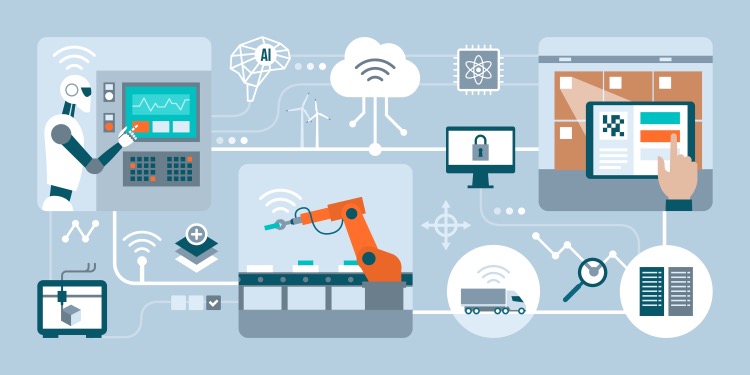- All of Microsoft

Azure OpenAI Services as a "CoPilot" in Visual Studio Code
power virtual agent | power platform | azure | principal architect
Motivation With Azure OpenAI services enhanced by your data, robust language models and Azure Cognitive Search work together to index your data and provide resp
Azure OpenAI Services integrates with Visual Studio Code as a "CoPilot", using your data and robust language models to index data and provide responses. This ensures the protection of your intellectual property, with all data and accesses securely in your control. Users can obtain instant answers to their questions without switching applications, boosting productivity and focus.
Azure OpenAI lets users operate compatible chat models, such as GPT-3.5-Turbo and GPT-4, without needing to train or finesse them. When deployed on your data, these models enable precise and speedy conversation and data analysis, aiding in making informed business decisions, identifying trends and patterns, etc.
In addition to its pre-existing knowledge, Azure OpenAI can access and reference specific data sources to fortify its responses. This ensures that the AI does not generate responses based on outdated or inaccurate information. To start with Azure OpenAI, users must already have approved Azure OpenAI access and have an Azure OpenAI Service resource with either the gpt-3.5-turbo or the gpt-4 models deployed.
- To create a custom model within your subscription, visit "oai.azure.com", create a new model deployment, select "gpt-3.5-turbo", give your deployment a name, view code in the playground/completions area and store the endpoint address & API key securely.
- The Visual Studio Code extension 'vscode-openai' created by Andrew Butson can be installed to enhance functionality. Installation is easy, features can be activated through the command palette ("Ctrl+Shift+P").
- Once the installation is complete, users can converse with the AI model directly in the editor. The model generates coding and committing assistance, improving the user experience.
In conclusion, the integration of Azure OpenAI Services with Visual Studio Code creates a seamless development experience - offering instant access to insights and coding help, fostering efficient workflows, improved decision-making, and increased productivity.

Exploring OpenAI with Azure and Visual Studio Code
Azure OpenAI service integrated with Visual Studio Code not only improves the user efficiency but also transforms the way developers handle complex coding scenarios. By constantly learning from your data, Azure OpenAI helps in maintaining the accuracy of data and helps in achieving faster and precise outcomes. This integration also enables swift access and instant answers to your questions, saving the time spent on toggling between different applications. It is a powerful tool, ensuring the protection of intellectual property and reliability.
Read the full article Azure OpenAI Services as a "CoPilot" in Visual Studio Code
Learn about Azure OpenAI Services as a "CoPilot" in Visual Studio Code

The main topic of this text is Azure OpenAI services and their use as a "CoPilot" in Visual Studio Code. Azure OpenAI services, powered by your data and robust language models, work alongside Azure Cognitive Search to index your data and produce responses in line with your organization's policies. This guarantees the safety of your intellectual property. Adding this into Visual Studio Code allows immediate answering of your questions within the coding environment. The use of Azure OpenAI enhances your ability to interact conversationally and analyze your data with more accuracy and speed. It offers tailored conversational AI content, accessing specified data sources for the most accurate and recent responses. It is mentioned that for one to get started, you need to be approved for Azure OpenAI access and have an Azure OpenAI Service resource with the gpt-35-turbo or gpt-4 models deployed.
More links on about Azure OpenAI Services as a "CoPilot" in Visual Studio Code
- 8 steps to building an Azure OpenAI Copilot for your startup
- Jun 27, 2023 — Azure OpenAI Copilot stack is a service that provides access to large-scale, generative AI models that can understand and generate natural ...
- New, Advanced GPT-4 AI Model Comes to GitHub Copilot ...
- Mar 22, 2023 — GPT-4, the advanced generative AI model from Microsoft partner OpenAI, is now powering the new GitHub Copilot X and the Azure OpenAI Service ...
- Visual Studio Code and GitHub Copilot AI
- Mar 30, 2023 — In this post, we want to give a little background on AI in VS Code, show you some exciting new experiences powered by GitHub Copilot, and give a ...
- microsoft/azure-openai-in-a-day-workshop
- Copilot. Write better code with AI · Code review. Manage code changes ... get a comprehensive introduction to Azure OpenAI Service and Azure OpenAI Studio.
- Azure OpenAI Service - an introduction
- Jun 28, 2023 — GitHub Copilot uses the Azure OpenAI Service. GitHub Copilot is basically a tool that you can use to suggest code.
- Use Azure OpenAI to create a Copilot on your own data in ...
- Jul 3, 2023 — Now that we setup all Azure resources we can start Visual Studio and implement a simple console application in C# to access our Copilot.
- Business Central AI Copilots and Azure OpenAI Services
- Jul 10, 2023 — In Visual Studio, Copilot acts as a pair-programmer making it more joyous to code – and increases your productivity at the same time.
Keywords
Microsoft Azure OpenAI guide, Visual Studio Code with OpenAI, Azure Cognitive Search and OpenAI, GPT-3.5-Turbo in Azure OpenAI, Using Azure OpenAI for data analysis